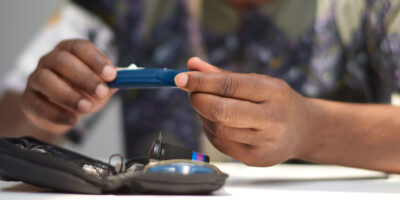Translational Science Benefits
Community & public health benefits (Health activities & products)
Definition
Digital and mobile technologies used by or for consumers to improve health care delivery and outcomes. Consumer software runs mostly on hand-held devices (e.g., smartphones and tablets, but not limited to immobile computers). These applications include allowing access to health care visit summaries, activity or calorie tracking, and diabetes treatment.
Rationale
Consumer software can inform doctors about patients’ environment and behaviors, deliver health care in real-time, and provide personalized data to inform future treatments and be aggregated for population-level analysis. Consumer software can potentially provide the data necessary to create methods/interventions for treatment and patient behavior.
Guidance
Advice from authors on searching for information:
Ratings and the number of reviews on search engines and app stores can provide a rough estimate of the impact and quality of the software should it appear on these services.
Resources & Data
Organizations, repositories, websites, and other sources where you can find more information:
Local
- Mercy Hospital’s Virtual Health Center. Telecommunications center at Mercy Hospital in St. Louis. Provides care to patients through online sources and has a center dedicated to innovative care, physician training, and testing new products.
General
- Health 2.0. Promotes new health care technologies through conferences, code-a-thons, and challenges. The Market Intel Health 2.0 Source database tracks products according to categories such as consumer facing, professional facing, patient-provider communication, etc. Access to the database requires a subscription.
- HealthIT.gov. Provides national guidelines and standards for treating and creating studies utilizing smart-phones and mobile devices. This website provides HIPPA standards, examples of national privacy frameworks for health records and information protection, and lists current laws in place to protect that information.
- Mobile Applications. Android Apps on Google Play, iTunes free and paid apps (Apple device required for full search), and Windows Phone Apps can be searched for a wide range of general medical (i.e. WebMD, medical records tracking, health tracking) or condition-specific (i.e. diabetes, heart rate monitors) mobile applications.
Data Limitations
Challenges you may encounter while searching for information:
Depending on the software platform, there may not be any data on utilizing it in studies or testing with patients.
Publications
Articles, books, and other publications in translational science using the indicator:
- Caburnay CA, Graff K, Harris JK, et al. Evaluating diabetes mobile applications for health literate designs and functionality, 2014. Prev Chronic Dis. 2015; 12:140433. doi: 10.5888/pcd12.140433.
- Ginossar T, Shah SF, West AJ, et al. Content, usability, and utilization of plain language in breast cancer mobile phone apps: A systematic analysis. JMIR Mhealth Uhealth. 2017; 5(3): e20. doi: 10.2196/mhealth.7073.
- Ortiz E, Clancy CM, AHRQ. Use of information technology to improve the quality of health care in the United States. Health Serv Res. 2003 Apr; 38(2): xi-xxii. doi: 10.1111/1475-6773.00127.
- Ozdalga E, Ozdalga A, Ahuja N. The smartphone in medicine: a review of current and potential use among physicians and students. J Med Internet Res. 2012 Sep;14(5): e128. doi: 10.2196/jmir.1994.
Case Studies

Identifying and Addressing Challenges to Diabetes Care in Real-Time in Youth from Disadvantaged Communities
Developing a smartphone app to help youth overcome barriers to diabetes care

SOLACE: An Early Warning System for Adolescent Suicidality
Creating technology that uses physiological measures to help adolescents prevent their own worsening suicidality and suicide attempts.

